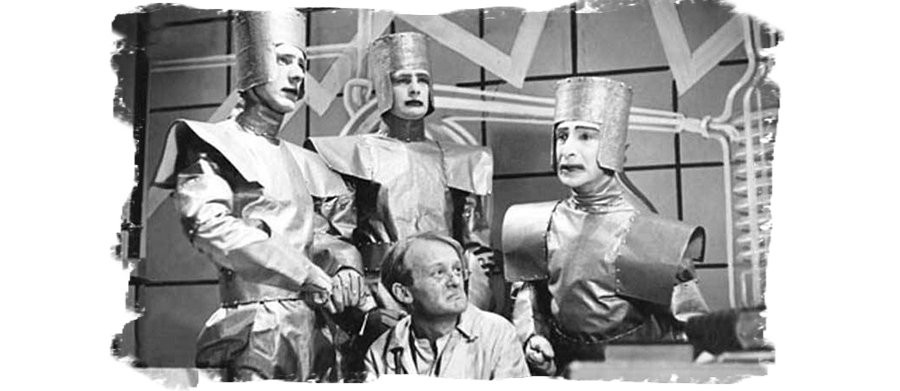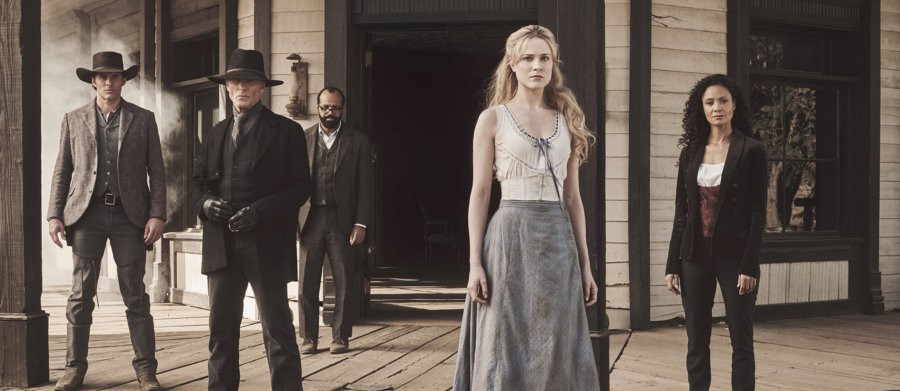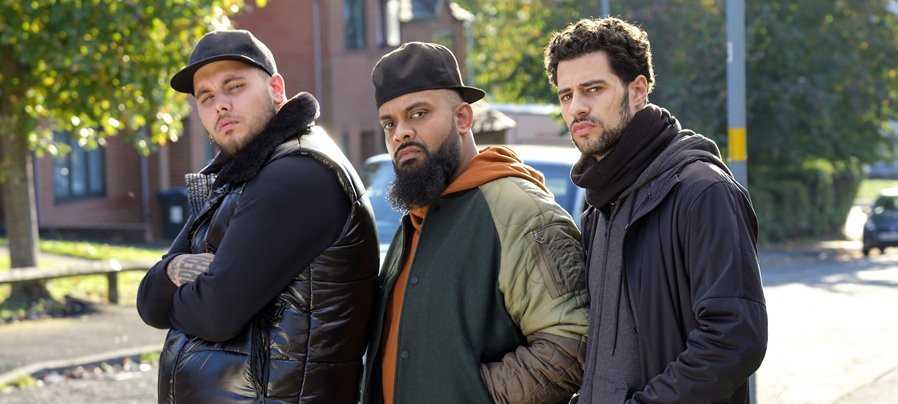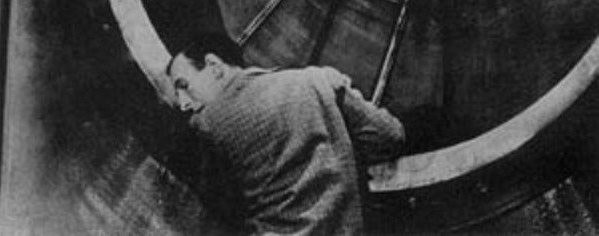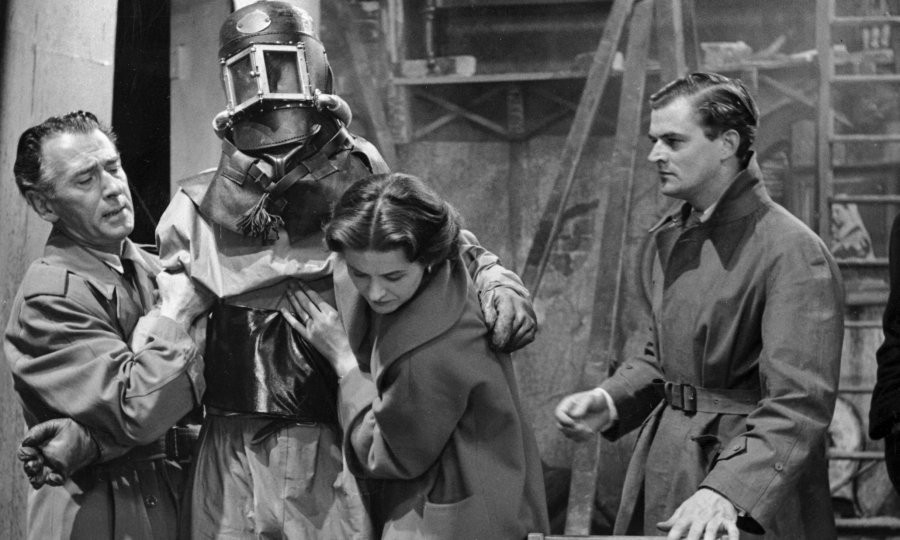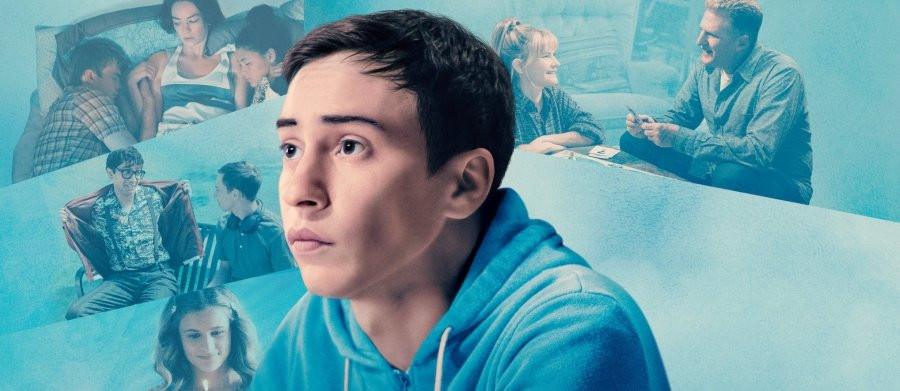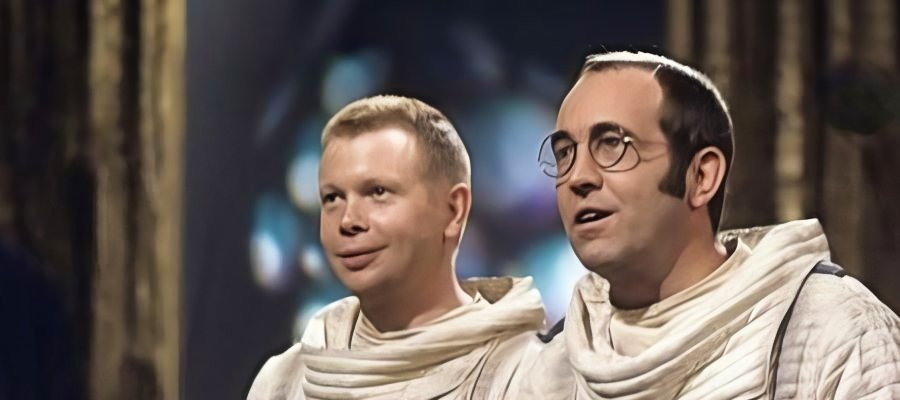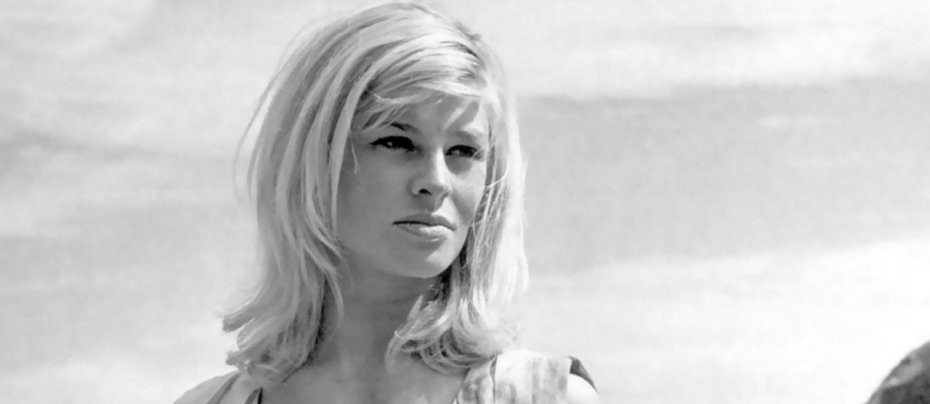
Philip K. Dick's Electric Dreams
2017 - Uk UsaPhilip K Dick's Electric Dreams is reviewed by John Winterson Richards
Philip K Dick is probably the most influential science fiction of our time. It was not always so. In his own time he was at the fringe of respectability. He was well known within science fiction circles, but even there he never enjoyed the prestige of, say, Sir Arthur C Clarke, Ray Bradbury, or Isaac Asimov, and anyway, this was when science fiction was not the huge industry it has since become. Like many of the pioneering generation that expanded the minds of the world from the 1950s on, PKD scratched a living as a prolific writer of cheaply produced "mass market paperbacks" and short stories for genre periodicals that were brought almost exclusively by small numbers of overly serious young men.
Despite living most of his time in California, PKD was unable to establish a career in Hollywood. Only towards the very end of his life did a film based very loosely on one of his novels finally emerge from "development hell." He did not live to see the finished product, which was given the fairly arbitrary title of Blade Runner, but when shown some of Sir Ridley Scott's production designs he exclaimed that it was as if someone had read his mind.
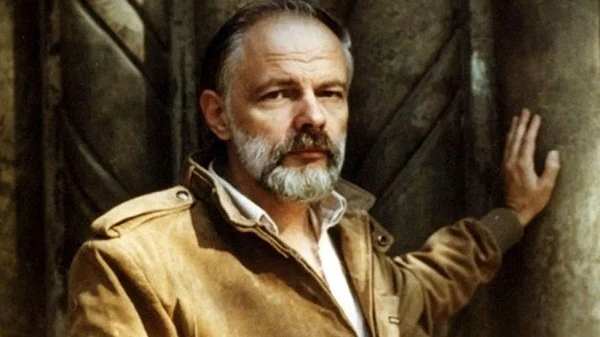
Truly, a prophet is not without honour except in his own land, and PKD now looks increasingly prophetic. He was writing "cyberpunk" - a subgenre exploring the seedy underside of high technology culture - long before the term was invented. His obsessions with the nature of reality, consciousness, humanity, and authoritarianism are more topical than ever in a time of "fake news" and manipulation of the internet.
How PKD would have loved the internet! He would probably have his own YouTube channel if he was around today, and might actually have made a reasonable living as a minor online "celebrity" - but then he would never have become the PKD who is now something of a "cult" figure in his own right, the modern update of the lone voice crying in the wilderness.
This image of himself as a latter day Elijah or Jeremiah might have rather appealed to PKD, who was, among many other things, a practising Episcopalian. He was also a child of the counterculture, a drug addict plagued by mental health problems, seriously convinced that Richard Nixon was after him personally, frequently married, very fond of cats, and self-consciously widely read. For all that his life was short and sedentary, it was extraordinarily full.
All this, combined with the nature of his writing, gives him a sort of mystique that most professional authors - on the whole a clean living bunch - would love to have but can rarely carry off. Posthumously he has achieved the huge commercial success that eluded him during his time on this planet. A number of his novels and short stories have been adapted - again, usually very loosely - into film and television projects, which include Total Recall, The Adjustment Bureau, and The Man in the High Castle.
Most of his most famous works are now under option, but the sheer bulk of the writing he had to do to keep himself in hallucinogens, obscure books, divorce settlements, and cat kibble means there is still a lot of stuff in his back catalogue, especially short stories.
The actor Bryan Cranston of Breaking Bad fame was a driving force in getting a number of the more obscure of those short stories in an anthology known as Philip K Dick's Electric Dreams, or simply Electric Dreams. He also cast himself - very effectively - in one of the best episodes.
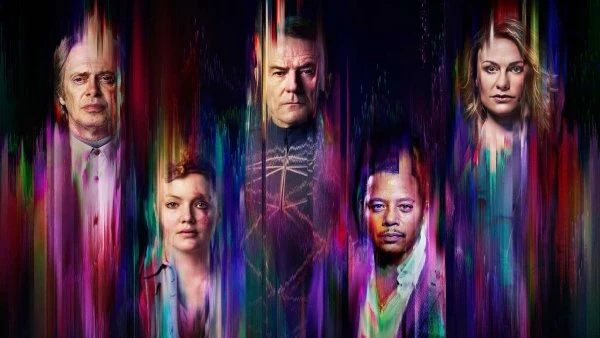
That some of the freestanding episodes are better than others is in the nature of such anthologies - and also of short stories. So is the lack of ongoing story and character arcs to keep the viewers hooked, and the building of a common world for them. Modern audiences - and readers - like "world building" and long arcs, so there is less of a market for short stories and their television equivalents these days. Structurally Electric Dreams has a great deal in common with the likes of The Twilight Zone and The Outer Limits, but such shows are usually more admired for their innovation and imagination than watched. A generation raised on "soap operas" prefers to get to know the same characters and their world over a long period of time.
It is therefore no surprise that Electric Dreams was a qualified critical success but not a big ratings success - or a financial success, given that the cast and production look very expensive.
In addition to the structural limitation, Electric Dreams suffers from the limitations of its source material. Frankly, and this is the friendly criticism of a fan, PKD's great strength is his gift for ideas not narrative. His plotting often runs out of steam. In many ways the short story is the best format for him because it showcases those ideas. It is no coincidence that the most successful adaptations of his works are usually based on short stories rather than novels. Even then adaptors usually have to be given a very free rein - as they were in Electric Dreams.
The episodes are summarised briefly here in the order in which they were first shown on Channel 4 in the UK. They have since been released on Amazon Prime in a different order that shows a greater awareness of the realities of business by beginning with three of the strongest episodes.
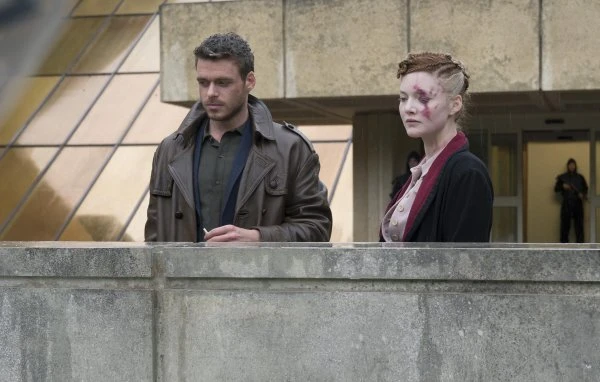
Channel 4's decision to start with one of the weakest episodes, 'The Hood Maker' was a major factor in the show's failure to achieve the public impact it deserved. In a dystopian future, as nearly all futures are in PKD, a totalitarian state, as nearly all states are in PKD, employs telepaths to spy on protestors - thus stirring up more protest, which leads in turn to popular prejudice against the telepaths. Someone making hoods that block the telepathic surveillance offers hope to both sides, but the potential of this is rather ignored, the focus of the story being instead a rather predictable romance between Richard Madden and Holliday Grainger. The schedulers obviously hoped the young stars would attract young viewers to the new series: if they did, those viewers were soon turned off by the downbeat and rather dull storyline, while more serious science fiction fans assumed there was nothing special to see. Paul Ritter has a brief guest role as an obnoxious politician but the character is not developed.
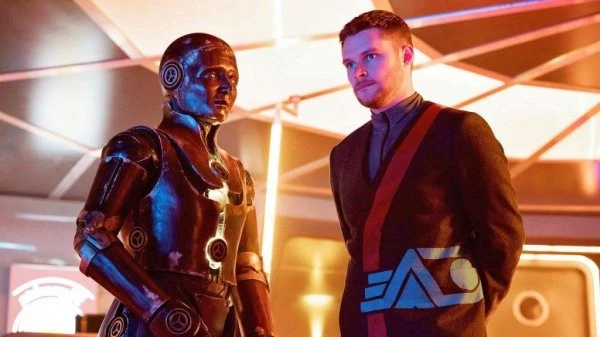
This misjudged introduction was followed by 'Impossible Planet,' a sweet little story that was nicely done in itself but not the best choice to maintain viewer interest at an early stage. It has basically only four characters, with a couple of others on video telephone, and is almost entirely studio based. Two slacker employees (Jack Reynor and Benedict Wong) who operate an interstellar cruise liner are offered a huge sum of money by a very old lady (Geraldine Chaplin) to take her to a planet that no longer exists. It is called Earth. The cast and some attractive special effects manage to sell a predictable plot very effectively, and in the end it is very moving.

The third episode, 'The Commuter,' also trades on extreme poignancy. A British railway employee with a difficult home life (Timothy Spall) is intrigued when a commuter (Tuppence Middleton) asks him for a ticket to a place of which he has never heard. There, in an apparently idyllic community - with delicious sounding free cake - he is relieved of all stress, only to find there is a price to be paid for this. The moral of the story is a truth rarely spoken these days, that there is more to life than personal happiness - or rather that happiness is not what we think it is, that it is not the same as love, and that ultimately it is love and not happiness that really matters most. This is a thoughtful, sedate piece kept compelling by another great performance by National Treasure Spall, a wonderfully humane actor who really ought to be in the shortlist for a Knighthood by now.

After two fairly slow paced and low-key episodes, the fourth, 'Crazy Diamond,' really seems to have splashed the cash on cast and production. The legend that is Steve Buscemi and Julia Davis play a husband and wife living a dull middle-class existence in an ultra-modern home that is in danger of falling into the sea due to coastal erosion, which seems to be a metaphor for the sterile, dying world which they inhabit. One day he meets a 'femme fatale,' played by Sidse Babett Knudsen from Borgen, who taps into his dreams of escaping his humdrum life to sail the seas. There is a lot of interesting stuff here, and the location work and photography which really punches up the colour give it a memorable visual style, but in the end the story does not live up to its potential.
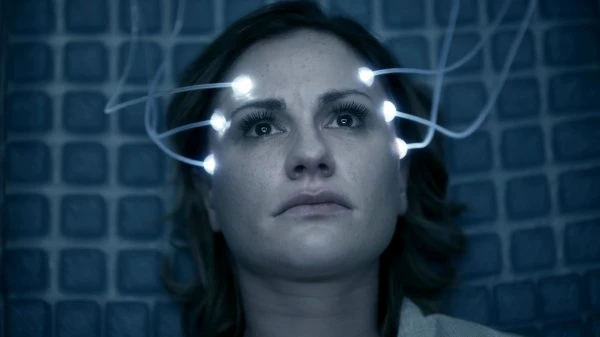
It is only in the fifth episode shown on Channel 4, 'Real Life,' that the show finally kicks into gear. Amazon chose to put it first on their playlist and one can see why: it is Philip K Dick at his most Philip K Dick, even if the script, like most in the series, departs from its source material in many respects. A police officer from the future (Anna Paquin) uses a "virtual reality" programme to play the role of a wealthy widower in the early 21st Century (Terrence Howard) who has invented a "virtual reality" programme ...in which he plays the role of a police officer from the future. So which, if either, is "real"?

This is followed by another cracker, shown third by Amazon. In 'Human Is' an unloved wife, played by the luminous Essie Davis, who is living in the usual PKD totalitarian state, is surprised when her previously obnoxious husband becomes caring and considerate on his return from a mission in Space. Executive Producer Bryan Cranston grabbed the plum role of the husband for himself and is perfectly cast. He basically gives us his famous Walter White in reverse in what is essentially 'The Return of Martin Guerre in Space.' The supporting cast includes Liam Cunningham and Ronan Vibert. The ending is particularly satisfying.
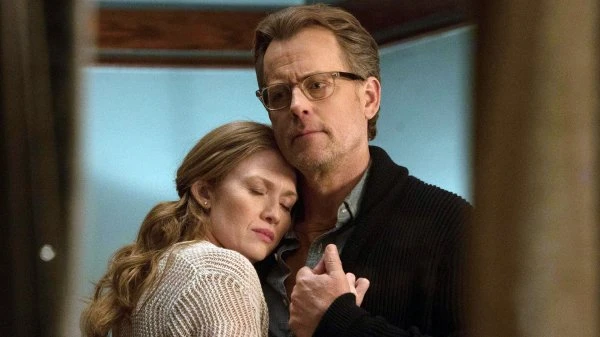
Something similar happens in reverse in 'The Father Thing,' in which a doting Dad with marital difficulties becomes more assertive after a meteor shower. The story bears a more than passing resemblance to Don Siegel's classic feature Invasion of the Body Snatchers, which actually came out a couple of years after PKD's original short story - even if it should be stressed that there is no evidence that the one was based on the other: such tales were common in the time of "The Red Scare." It is made even more unsettling by a carefully calibrated performance by Greg Kinnear, who normally plays Nice Guy parts, in the title role, and the fact that the actual protagonist is a child.

At face value, Autofac seems to be a fairly obvious parable about our own times: a gigantic automated factory is continuing to produce useless and unwanted consumer goods years after the effective destruction of the human race, and in the process is destroying the environment on which the handful of survivors are dependent. A young hacker (Juno Temple) tries to use a customer service robot (Janelle Monae) to shut it down. However, things take an unexpected turn. To be honest the conclusion does not entirely make sense, but it is an intriguing journey and one can see why Amazon put it second on their playlist.
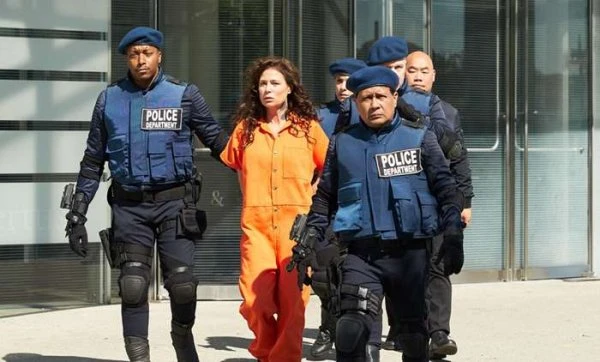
It is followed in the Channel 4 order by another strong episode, Safe and Sound. In this all too credible future America is divided in two: on the wealthy coasts, people embrace the latest information technology at the price of surrendering their privacy, while the interior is inhabited by poorer, self reliant libertarians who scorn that technology. There are obvious parallels with mobile telephones, but in the future people have become a lot more reliant on the wristbands that seem to serve every function. Both cultures seem to be paranoid: the wealthy are obsessed with keeping themselves safe from a libertarian terrorist threat that might or might not be genuine, while the libertarians are edgy conspiracy theorists who believe, perhaps with good reason, that the technology types are out to get them. A teenage girl (Annalise Basso) finds the transition from one world to the other is fraught with difficulties. While the plot is ultimately stretched a bit too far, and rather undermined by introducing the possibility of mental illness, this is an intelligent and visually arresting slice of television that might keep you thinking for a long time afterwards.
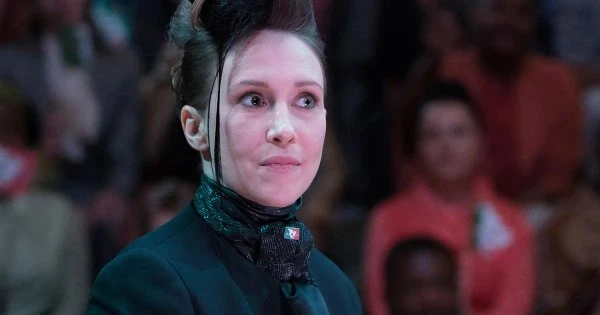
Both Channel 4 and Amazon Prime chose to end their runs with what might be the darkest and most powerful episode - it is certainly the most believable - 'Kill All Others.' Mel Rodriguez, possibly best known for a stunning guest performance in Better Call Saul, is a normal guy, a factory worker more or less happily married, except his wife, played by Sarah Baker, who was so good as Michael Douglas' down to Earth daughter in The Kominsky Method, has a crush on a holographic advertisement for Brazilian coffee. They live in the "meganation" of "Mexuscan." This is a democracy in that it still has elections but there is only one candidate. Played with acute observation by the superb Vera Farmiga, The Candidate combines all the worst aspects of Barack Obama, Hillary Clinton, and Donald Trump - the meaningless slogans, the faux reasonableness, the crowd pleasing generalisations.
Then, amid all this pastiche of serious political discussion our unlikely hero hears The Candidate remark in passing that they should "kill all others." At first no one seems to pick up on this. Then the idea of killing the "others" gradually enters mainstream conversation. A few, like our hero, are shocked at first, but soon no one seems to think there is anything unusual about the idea. Who are these "others"? No one knows - or particularly seems to care. It just seems natural that they should be killed. The proposition is normalised very quickly.
This is frightening because it is currently all too easy to see our culture going the same way - or does simply saying that make your reviewer an "other"? This is the sort of question intelligent science fiction is intended to provoke.
PKD always saw himself as an "other." The word does not appear in this context in the short story on which Kill All Others is based but he was the outsider who saw what others did not, or perhaps the real difference was that he was prepared to say what he saw when the herd instinct is to keep quiet and stay safe. Our culture pretends to admire such people, but in reality treats them poorly.
He would probably be amused by his mainstream success when he is conveniently no longer around - particularly by the commodification of his protest against commodification. That said, the very professional writer in him would probably be quite impressed by how the team headed by Ronald D Moore put flesh on the relatively simple ideas of his short stories and brought them up to date, especially Real Life, Human Is, Safe and Sound, and Kill All Others. He might also be impressed by the visual style of Impossible Planet and Crazy Diamond, and by the performances of Spall in The Commuter and Kinnear in The Father Thing.
Whether he would be impressed by the world that made them seems unlikely, even if it might cheer him a little to know how much he got right in his predictions.
Seen this show? How do you rate it?
Seen this show? How do you rate it?
Published on June 23rd, 2022. Written by John Winterson Richards for Television Heaven.



